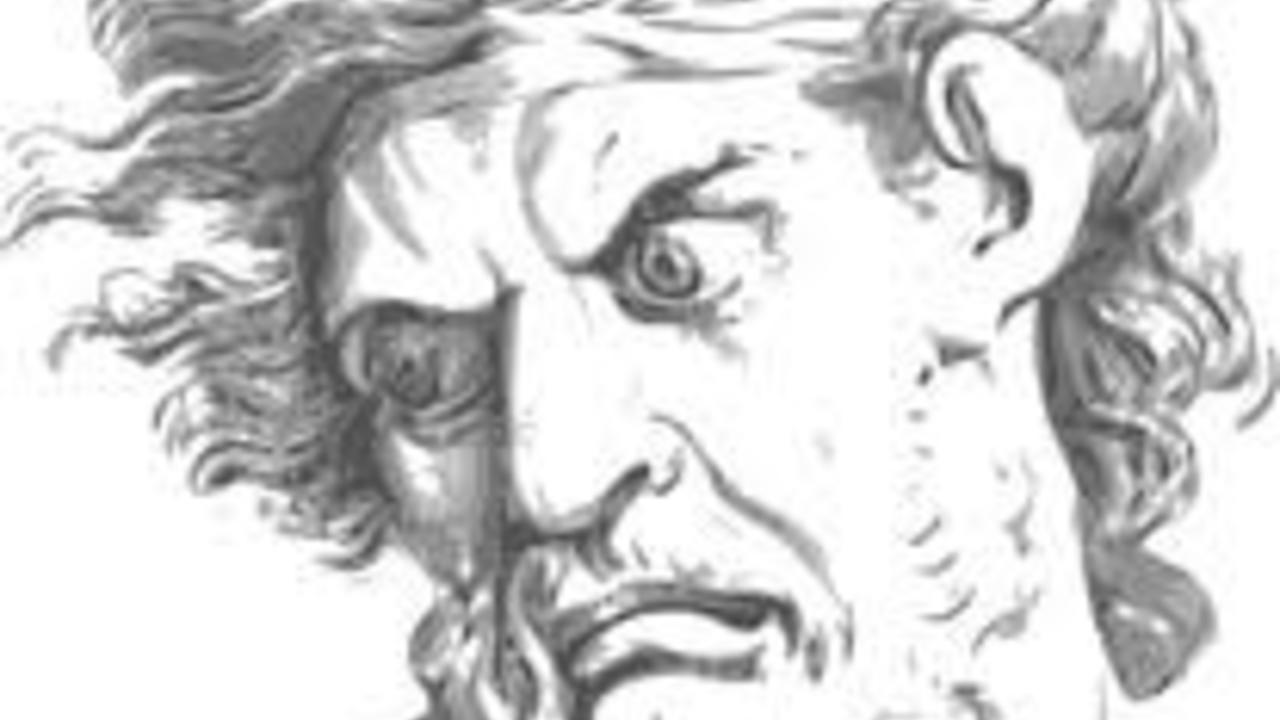Visit IIC podcasts #23-29 for more on God Images!
by Peter T. Malinoski, Ph.D.
As Catholics, we believe that we are created and placed on this earth to know, love and serve God in this world and be with Him forever in the next. That is our primary purpose here, and all things should serve that final and most important reason for our existence.
The first step in accomplishing that goal is to know God. But what if we don’t really know God? Or we don’t know the real God? What if who we think is God is distorted? If that is true, it becomes very difficult to accomplish the final two pieces of our mission on earth: to love Him and to serve Him.
We live in a fallen world, surrounded by the effects of original sin, our own sins and the sins of others. It’s not surprising, then, that most of us have a distorted image of God, which is keeping us from completely fulfilling our purpose on Earth.
Acknowledge the Difference Between the Real God and Our God Image
If we are sufficiently catechized, we know the Real God through our intellect. We learn about Him from our priests, teachers, and parents. We can know about Him, His attributes and His essence through Scripture and the lives and teachings of the saints. We profess our faith, and we have a definition of God. That’s the real God.
However, we all hold images of God that are based on our own human experiences. Those are the perspectives of God that we “know in our bones.” These images are usually not readily acknowledged by our intellect. As a result, they can negatively affect our relationship with God as well as interfere with our mission on earth.
Within the first year of life, an infant learns in a very intuitive and nonverbal way how relationships work. Unconscious knowledge about how to manage emotional cues are set, and all those lessons begin to form that individual’s personal God image. It is most often based on our parents, who are sinful, fallen humans, not on the infinitely perfect and loving Being who is God. It’s no wonder, then, that our image of God is distorted.
Admit That Sin Negatively Affects Our God Image
If we have a relatively positive relationship with our parents, it is understandable that we don’t want to blame them for negative aspects of our life. But it’s important to remember that sin brings our bodies pain, illness, suffering and death; sin is bound to have the same effect on our psyche. In many cases, one of those effects is a distorted God image.
Research shows, for example, if a child has a distant, unemotional parent, he may fail to attach securely to an important caregiver. As a result, that child typically sees God as controlling, distant, and critical. If a child has an overly anxious parent who has a sense of inadequacy, she may cling to God and worry about His reliability in her life. We need to see and accept that human brokenness can have a negative and significant impact on how we see God, which can lead to a failure to really know Him.
Obtain a More Accurate God Image
We should all be motivated to obtain a more accurate image of God as it leads us closer to Truth, which ultimately leads us closer to Him. In order to do so, we must start with prayer and the sacraments. Ask God to reveal Himself to you as He really is. Ask Mary to help you heal your distorted image of Him.
We can also engage our intellect to learn about psychological phenomenon and how they can affect our relationship with God. For instance, humans naturally have transferences to others. That means that we unconsciously attribute what we experience in human relationships to other relationships. If we have a strained relationship with our father but, later, find an older male mentor in the workplace, we can have a father transference to that individual. Transferences can help us psychologically “work out” things in our life where they didn’t work out the first time. However, if we transfer what we know from our earthly, imperfect father, to our divinely perfect Father, it will be distorted. Understanding that will help us overcome it.
Writing down thoughts and feelings about God as well as your relationship with your parents can help you parse out what’s true from what is distorted to help you obtain a better and more accurate picture of who God really is. Knowing Him truly will allow us to love and serve Him and others more faithfully.
Ultimately, there is no substitute for experiencing God as He is in order to correct our God images. We need the personal connection to God through our prayers. So the starting point for breaking free of oppressive, negative God images is to bring them to God Himself, and ask for help with them. Our Mother Mary can also intercede for us — she can guide us in this work as well.
About Peter Malinoski, Ph.D.
 Peter Malinoski, Ph.D., is president and co-founder of Souls and Hearts. He has been a clinical psychologist for the past 18 years in private practice in Indianapolis. He specializes in resolving problems and healing wounds that bridge the psychological and spiritual realms. A particular emphasis on unconscious psychological factors that thwart one’s capacity to receive love from God, the Blessed Virgin Mary, and other people underlies his work. For more information about his private practice, please visit Secure Foundations.
Peter Malinoski, Ph.D., is president and co-founder of Souls and Hearts. He has been a clinical psychologist for the past 18 years in private practice in Indianapolis. He specializes in resolving problems and healing wounds that bridge the psychological and spiritual realms. A particular emphasis on unconscious psychological factors that thwart one’s capacity to receive love from God, the Blessed Virgin Mary, and other people underlies his work. For more information about his private practice, please visit Secure Foundations.
